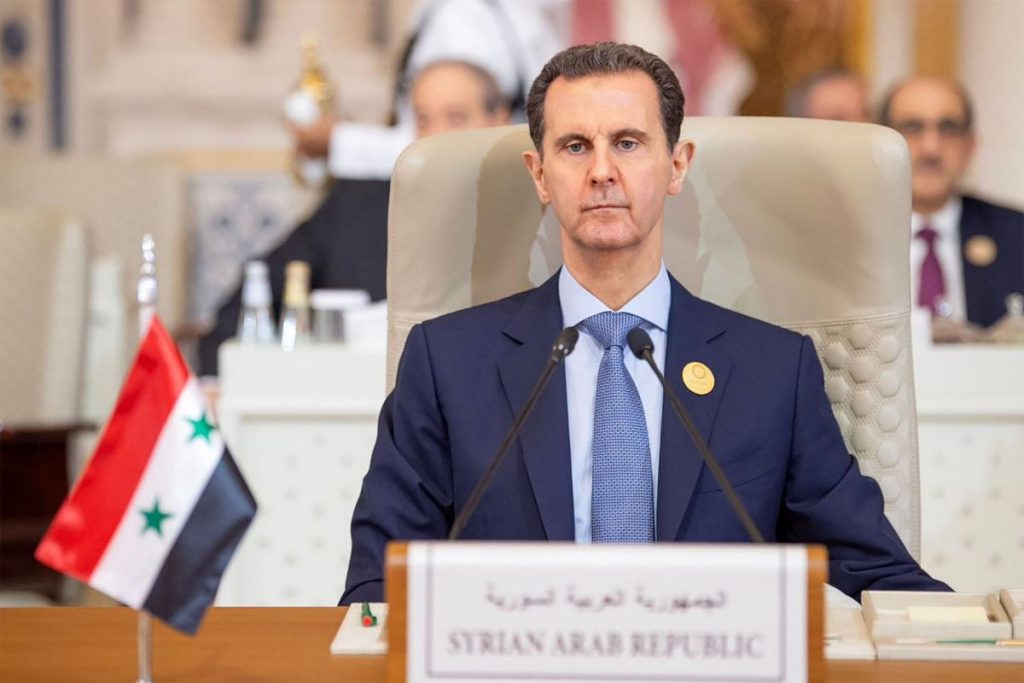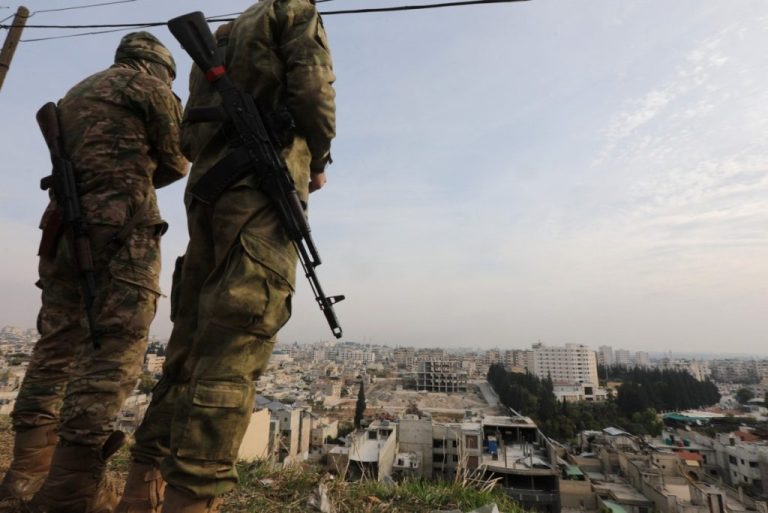The tomb of Hafez, the father of deposed Syrian President Bashar al-Assad, was set on fire In his birthplace of Qardaha,, as captured on camera by AFP on Wednesday. Young men and rebel soldiers wearing fatigues watched the burning.
The mausoleum is situated in the stronghold of Assad’s Alawite community in Latakia, and the Syrian Observatory for Human Rights war monitor informed AFP that the rebels had set it on fire. A portion of the mausoleum was seen destroyed and on fire in AFP footage.
Ayatollah Ali Khamenei, Iran’s supreme leader, stated on Wednesday that Tehran’s authority would not be diminished by the waning of anti-Israel “resistance” following the overthrow of Bashar al-Assad in Syria.
Unaware of the significance of resistance, some people believe that Islamic Iran will likewise wane as resistance does. The first address Khamenei gave following the overthrow of Assad declared, “Iran is strong and powerful and will become even more powerful.”
The decades-long dominance of the Assad family, formerly an ally of Tehran, came to an end as Syrian rebels abruptly moved from their strongholds in the northwest to Damascus.
Assad had long been a key player in Iran’s anti-Israel “axis of resistance,” especially in organising the flow of arms to Hezbollah, Tehran’s partner in adjacent Lebanon.
The Huthi rebels in Yemen, Hamas in Gaza, Hezbollah, and lesser Shia armed organisations in Iraq are all part of the axis of resistance.
They are all united in their antagonism to Israel and the United States, which is its principal ally.
Iran’s supreme leader, who has the last word in matters about his nation, accused Israel and the United States of conspiring against Assad on behalf of “the Zionist regime.”

“What has happened in Syria is the result of a joint US-Israeli plot, and no one should question that,” he stated.
Additionally, he condemned, without naming the nation, another “neighbouring state of Syria” for its “obvious role” in the recent events.
Syria is bordered by Iraq, Israel, Jordan, Lebanon, and Turkey.
Among those neighbours, Turkey has long advocated for Assad’s overthrow.
In Syria, Khamenei claimed that various “invaders” had distinct objectives.
He stated, “They have different objectives; some want to take over parts of northern or southern Syria, while America wants to improve its standing in the area.”
In Syria’s south, the Israeli army has deployed troops into a UN-patrolled buffer zone east of the Israeli-annexed Golan Heights, while Turkey has troops in the country’s north.
The United States has forces stationed in Syria as well, where they have collaborated with Kurdish-led combatants fighting the Islamic State organisation.
When the Syrian civil war broke out in 2011, Iran sent what it called “military advisers” to support Assad, marking the height of ties between Tehran and Damascus.
Khamenei acknowledged the advisory function of Iranian soldiers in the nation and seemed to be complaining that Assad had “an army that can’t stand and runs away.”
He went on to say that if “the motivations remained the same inside that country” as they did earlier in the war, Syria may have received assistance.


